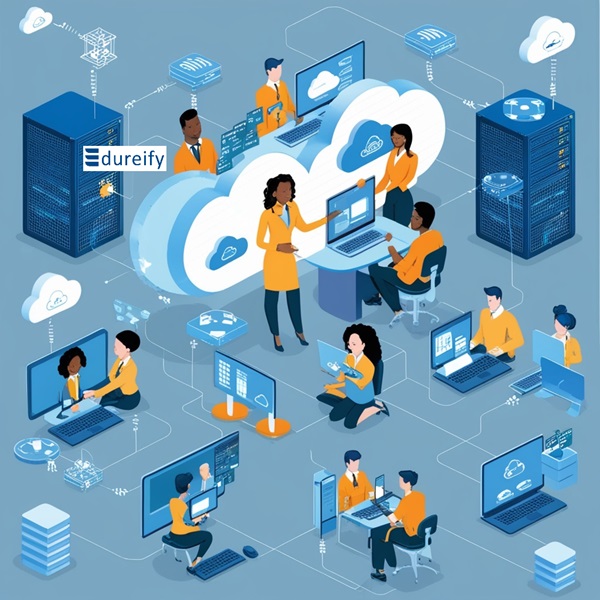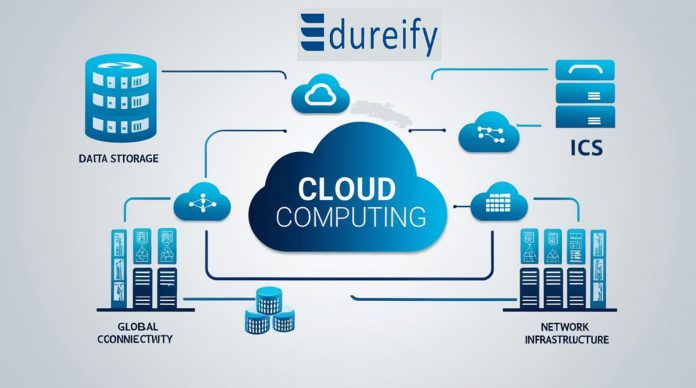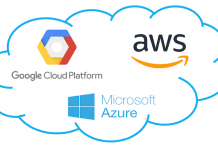In this blog, we’ve compiled a list of the top 25 cloud computing interview questions and answers to help you ace your next interview. Cloud computing is rapidly transforming the way businesses operate, and understanding this technology is now essential for software engineers and IT professionals alike. Whether you’re aiming to switch careers or advance in your current role, gaining expertise in cloud technologies is crucial.
To ensure you are well-prepared for your next cloud computing interview, this guide will test your knowledge of key concepts such as scalability, elasticity, and cloud deployment models. With thorough preparation, you’ll be ready to impress hiring managers and secure the cloud computing job of your dreams.
Moreover, If you have any questions and need a guided answer, you can use Edureify’s AI-powered AskAnything chat.
Cloud Computing Interview Questions You Should Know
Cloud computing is a fundamental skill for IT professionals, and preparing for an interview in this field can feel overwhelming. To simplify your preparation, we’ve outlined the top 25 cloud computing interview questions that you should familiarize yourself with. From understanding the basics of cloud architecture to mastering more advanced topics like elasticity and hybrid cloud models, this guide covers everything you need to know.
By practicing with these questions and preparing with Edureify’s AI-powered Mock Interviews, you’ll gain the confidence and knowledge you need to stand out. Ready to dive in? Let’s get started!
Questions for Cloud Computing Interviews
1. Cloud computing: What is it?
Cloud computing refers to internet-based computing services that allow users to access a wide range of resources such as servers, storage, and applications on the internet. This means you can access these resources from anywhere, at any time.
2. How does cloud computing work?
Cloud computing works by using a network of remote servers, data storage systems, and services hosted over the internet. These servers provide scalable resources for users to access computing power, storage, and other services without relying on physical infrastructure.
3. Who are the three users of Cloud?
The primary users of cloud computing are:
- End Users: People who access cloud services for personal or business purposes.
- Business Management Users: Individuals who manage the deployment and usage of cloud services in businesses.
- Cloud Service Providers: Companies that deliver cloud services to customers
4. What Are the Advantages of Cloud Computing?
Cloud computing offers numerous benefits, including:
- Backup and Storage of Data
- Powerful Server Capabilities
- Increased Productivity
- Cost-Effective and Time-Saving
- SaaS (Software as a Service) Offerings
5. What Are the Key Features of Cloud Computing?
Cloud computing comes with several powerful features:
- Location Independence
- Agility
- Reliability
- Scalability
- Multi-Tenant Architecture
6. What Are the Different Cloud Service Models?
There are three main cloud service models:
- IaaS (Infrastructure as a Service)
- PaaS (Platform as a Service)
- SaaS (Software as a Service)
Each model offers different levels of control and responsibility to the user.
7. What Are the Most Important Components of a Cloud Ecosystem?
The key components of a cloud ecosystem are:
Cloud consumers refer to individuals or teams who utilize cloud services for various purposes, whether personal or professional. On the other hand, cloud service providers are companies that offer cloud services to these consumers. These services are built on cloud infrastructure, which includes the hardware, software, and various services that together form the foundation of the cloud environment.
8. Who Are the Direct Consumers of the Cloud Ecosystem?
Direct consumers are the users who directly interact with and utilize cloud services provided by cloud service providers, such as employees accessing cloud-hosted applications.
9. Who Are the Cloud Consumers of the Cloud Ecosystem?
Cloud consumers include employees or teams within an organization who use cloud services for various business operations.
10. Who Are the Cloud Service Providers in the Ecosystem?
Cloud service providers are companies that deliver cloud computing services to businesses and individuals. Examples include Amazon Web Services (AWS), Microsoft Azure, and Google Cloud.
11. What Are the Storage Levels of the Cloud?
The different levels of storage in cloud computing include:
- Blocks
- Datasets
- Files
- Objects
12. What Is the Best Open-Source Cloud Computing Platform?
OpenStack is one of the best open-source cloud computing platforms, offering a flexible, scalable cloud infrastructure for organizations.
13. Which Platforms Support Large-Scale Cloud Computing?
The following platforms support large-scale cloud computing:
- Apache Hadoop
- MapReduce
These technologies are widely used for managing and processing big data.
14. What Are the Cloud Deployment Models?
There are several deployment models in cloud computing:
- Private Cloud: A dedicated cloud infrastructure for a single organization.
- Public Cloud: Cloud services available to the general public, typically offered by third-party providers.
- Hybrid Cloud: A combination of both private and public cloud services.
- Community Cloud: A shared cloud infrastructure used by a specific community or organization.
15. What Is Scalability in Cloud Computing?
Scalability is the ability of a cloud system to handle an increased workload by adding or reducing resources as needed. This feature allows cloud services to adjust to the demands of users dynamically.
16. What Is Elasticity in Cloud Computing?
Elasticity refers to the cloud’s ability to automatically scale resources up or down based on real-time demand. This ensures that cloud infrastructure can adapt to fluctuations in usage efficiently.
17. What Are the Component Layers of Cloud Architecture?
The key layers of cloud architecture include:
- Cloud Controller
- Walrus
- Cluster Controller
- Storage Controller
- Node Controller
Each layer plays a critical role in managing cloud resources and services.
18. What Is the Private Cloud Model?
A private cloud is a cloud infrastructure dedicated exclusively to a single organization, offering more control and security for sensitive data.
19. What Is the Public Cloud Model?
The public cloud model is a cloud computing model where services are provided to the public by third-party providers and are usually free or low-cost for users.
20. What Is the Hybrid Cloud Model?
The hybrid cloud model combines both private and public clouds, allowing organizations to move data and applications between the two environments based on their specific needs and requirements.
21. What Is the Community Cloud Model?
The community cloud model enables multiple organizations to share cloud resources, services, and infrastructure. This model is ideal for organizations with shared concerns or needs.
22. What Is Cloud-Native?
Cloud-native refers to the use of cloud-based technologies and services that are designed to take full advantage of the flexibility and scalability offered by cloud environments.
23. What Is the Use of Utility Computing?
Utility computing refers to cloud services that are billed based on the user’s consumption, allowing businesses to pay only for what they use, similar to how utilities like electricity are billed.
24. What Is Edge Computing?
Edge computing is a distributed computing framework that brings data processing closer to the data source, improving response times, bandwidth efficiency, and overall performance. It is particularly beneficial for IoT applications.
25. What Are the Two Data Center Deployments in Cloud Computing?
The two common types of data center deployments in cloud computing are:
- Containerized Data Centers
- Low-Density Data Centers
Each has its advantages depending on the size, scalability, and type of workload being managed.

Cloud computing continues to play a pivotal role in the IT industry, and understanding its core concepts is essential for anyone looking to build a career in this space. By preparing for these top 25 cloud computing interview questions, you can ensure that you’re ready for your next cloud computing job interview.
Mastering Cloud Computing: Your Path to Success
Cloud computing is an integral part of the IT industry, and understanding its core concepts is vital for anyone pursuing a career in this field. By reviewing these top 25 cloud computing interview questions, you’ll be well-prepared to take on your next job interview with confidence.
Start your journey today and equip yourself with the skills needed to excel in cloud computing! Download the BootSelf app now
Master Your Coding Skills with BootSelf AI
If you're looking to enhance your coding abilities and upskill in artificial intelligence, look no further than the BootSelf AI app. This innovative platform provides AI-based coding lessons that are tailored to your individual learning pace.
Available on both iOS and Android, you can download the BootSelf AI app and start mastering coding skills today:









